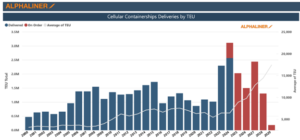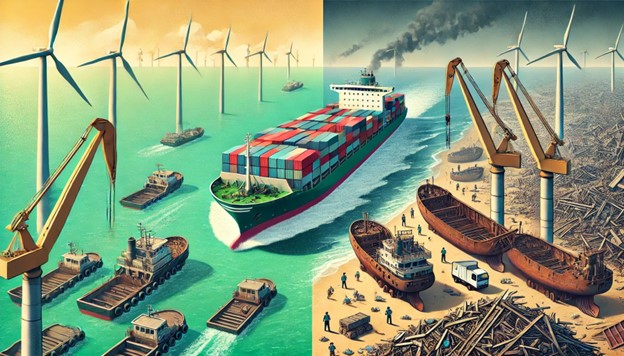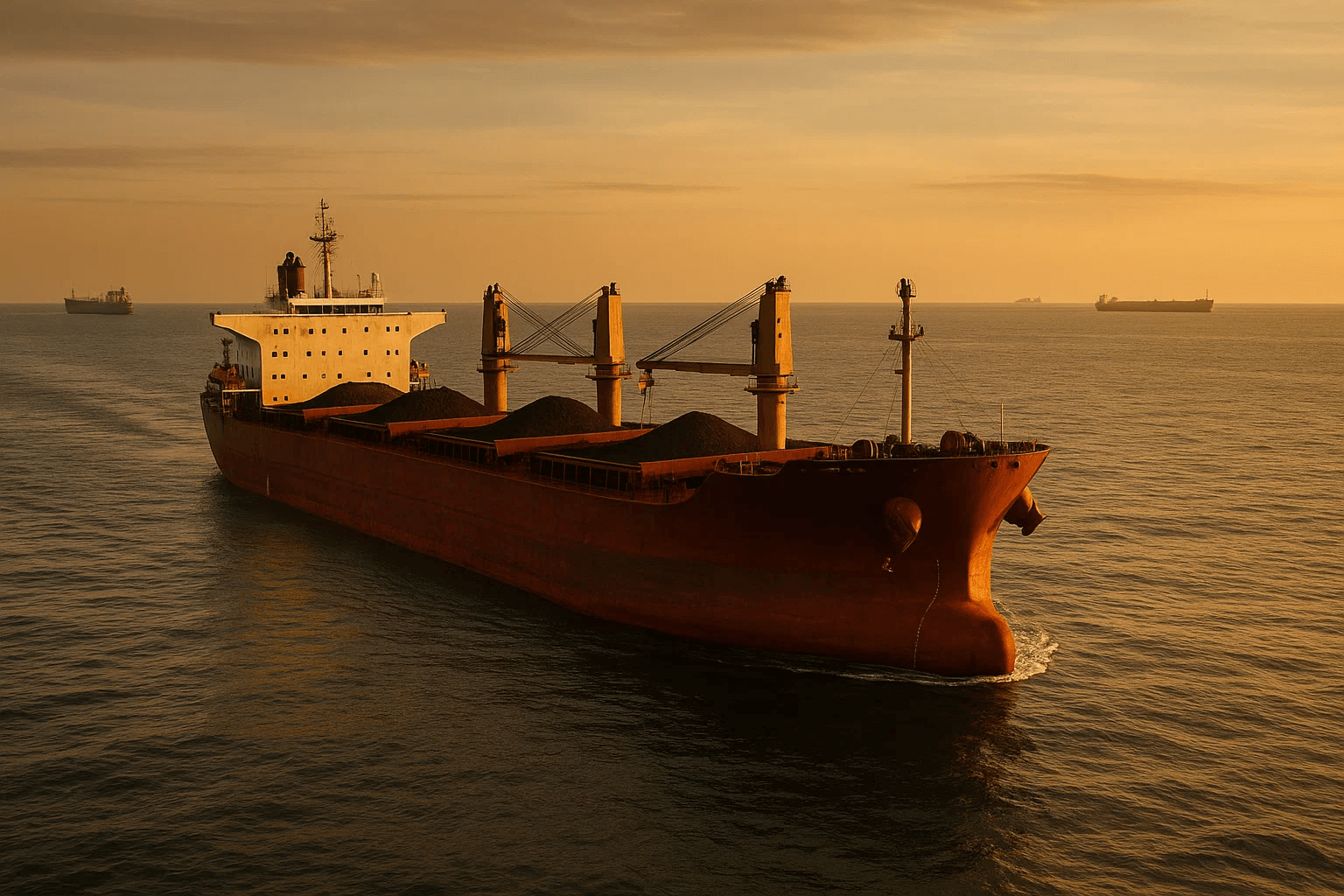The container vessel market is undergoing some critical and structural changes, led by the rising regulatory pressure on carbon footprint and vessel efficiency.
Carriers are evaluating different strategies to respect the 2023 IMO Strategy on Reduction of GHG Emissions, aiming to reduce by 40% the CO2 emissions by 2030 (compared to 2008 levels). Such fuel-oriented strategies mainly include:
-
- Dual-fuel vessels, capable of running on LNG (Liquefied Natural Gas) as well as traditional fuels. Over 70% of new orders for container ships in 2023 featured dual-fuel capabilities, and the trend is still continuing with a recent order from Maersk for 20 new units.
- Ammonia and methanol vessels, were developed as zero-carbon fuel alternatives. Consider Maersk again, which received its first methanol-powered ship in 2023 and plans to scale up its green methanol fleet significantly by 2030. With the ammonia vessel market expected to grow by 6% each year until 2030.
- Retrofitting existing vessels, an option that can cost up to 10/15 million dollars per vessel, including some technical challenges and uncertainties.
Considering what is mentioned above, two out of the three key options consist in building new vessels, with a question coming as a consequence, what about the obsolete ones?
This question brings the discussion towards one of the “darkest” sides of the entire shipping world, Ship Recycling, a better synonym for the so-called “scrapping”.
While most modern countries respect the IMO standards with demolitions happening in controlled environments such as Dry Dock ship breaking, with close attention on the environmental and safety & security aspects, the biggest Ship Recycling countries (Bangladesh, India and Pakistan) are still relying on a very specific method, the so-called “beaching”.
Highly impactful from an environmental point of view, but also extremely dangerous for the involved workforce, beaching is the type of recycling that is applied to almost 70% of scrapped ships. Consisting of a manual demolition splitting the vessels into smaller parts, with low safeguards for workers (with dozens of casualties per year) and the environment (any kind of substances are released in the process while being physically in touch with both land and sea).
The Hong Kong Convention (International Convention for the Safe and Environmentally Sound Recycling of Ships) will soon be enforced after 16 years since its adoption in 2009 due to all expected criteria being met back in 2023. Quoting the IMO definition: “Regulations in the Convention cover: the design, construction, operation and preparation of ships so as to facilitate safe and environmentally sound recycling without compromising the safety and operational efficiency of ships; the operation of ship recycling facilities in a safe and environmentally sound manner; and the establishment of an appropriate enforcement mechanism for ship recycling, incorporating certification and reporting requirements.”
In the meantime many carriers do not seem ready and going towards what has been established in the Hong Kong agreements. In the past weeks MSC has been strongly challenged by the ONG “Shipbreaking Platform” on the vessel scrapping and the same ONG highlighted the hypocrisy of the Italian-Swiss Carrier which is collaborating and contributing to reduce the environmental impact on some areas (MSC just signed an agreement in the UK in collaboration with the UK environmental agency), while still proceeding with dangerous and polluting scrapping methods.
As mentioned at the beginning of the article, the current green fuel challenge is directly affecting the pace of obsolescence of vessels, and will soon oblige carriers to recycle a relevant part of their fleet due to a mix of factors.
For years, due to a positive market trend since the COVID pandemic, the amount of scrapped vessels has been minimized, however this trend could soon shift considering the huge amount of new built to be delivered in the coming years – as per Alphaliner Chart – and the increased average age of the global fleet. For reference, as per Alphaliner data, the container fleet with an age of 15+ years moved from 15% in 2018, to 31% in 2024.

 Source: Alphaliner Monthly Monitor, November 2024
Source: Alphaliner Monthly Monitor, November 2024
While green shipping innovations aim to minimize carbon footprints and comply with global environmental regulations, ship scrapping on polluted beaches creates localized environmental and human crises. The strive towards green fuel usage is by all means a great initiative, however this should not be used as a positive cover page hiding a hypocritical “dark side” of pollution and human safety risk.






